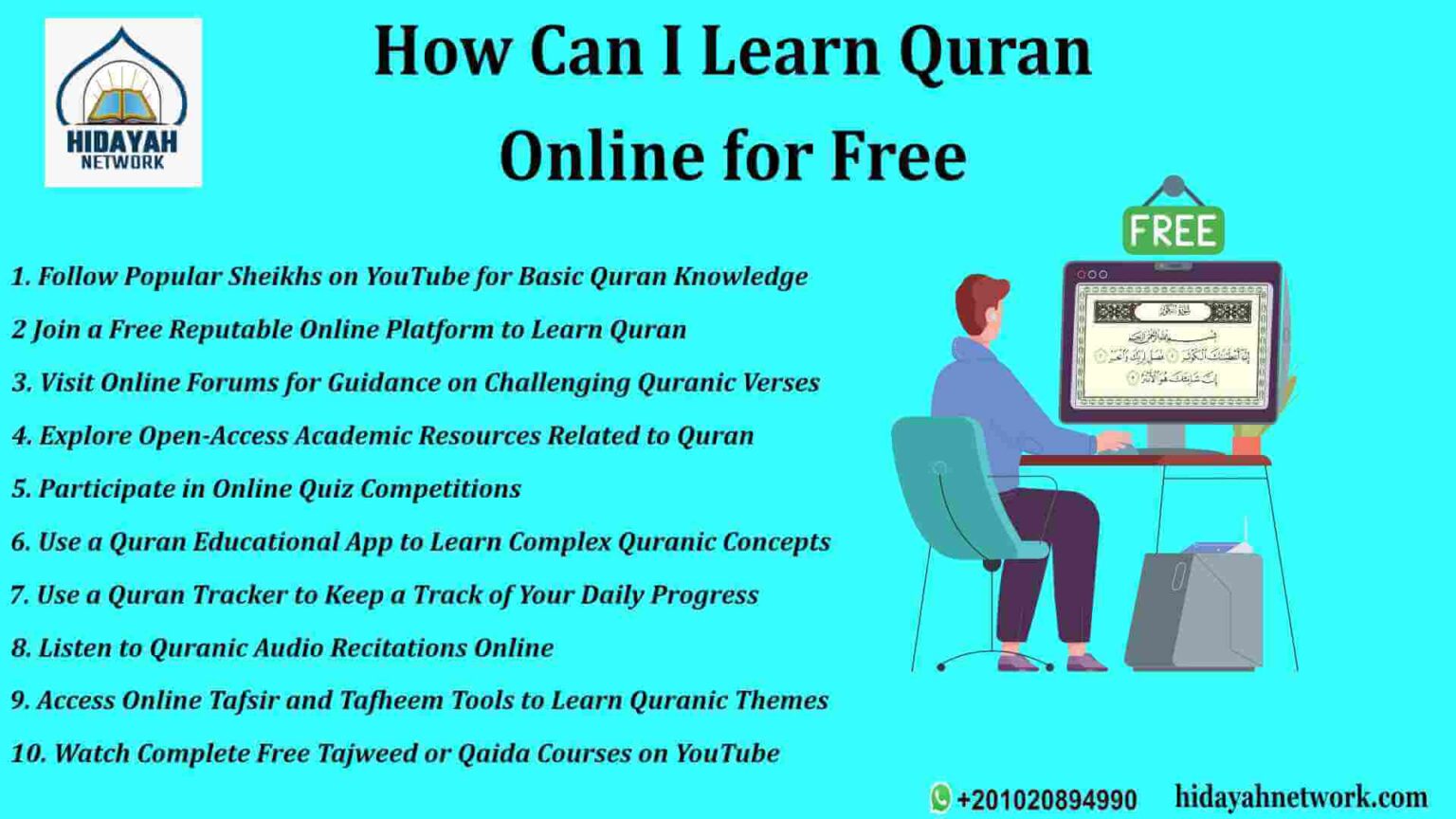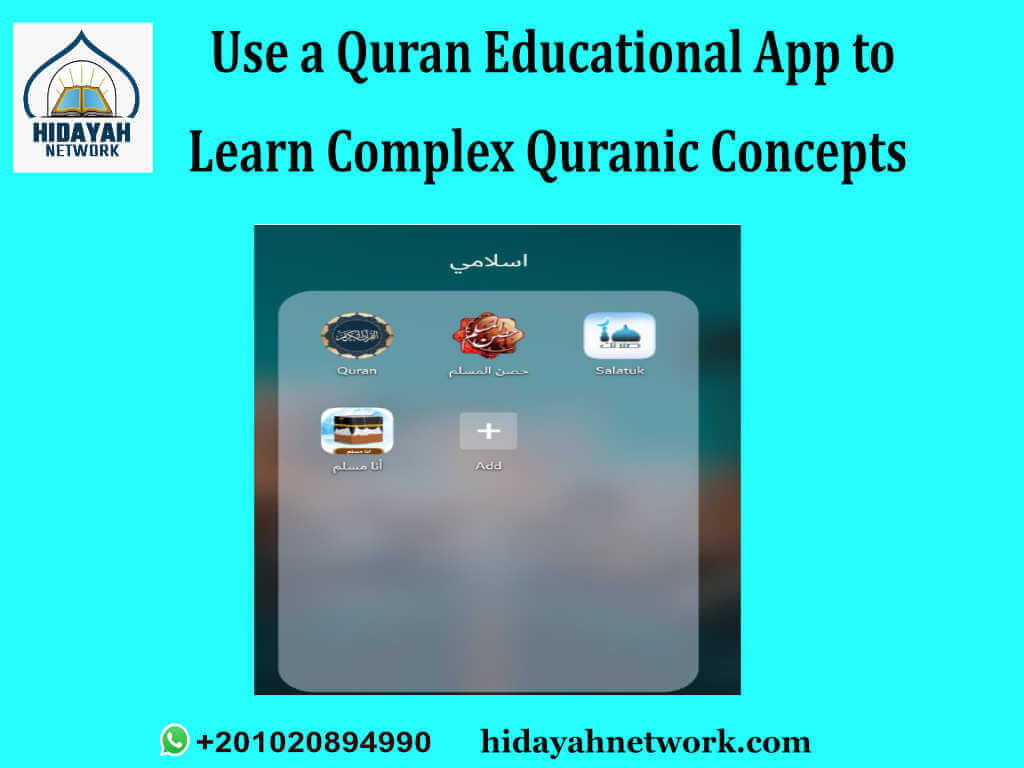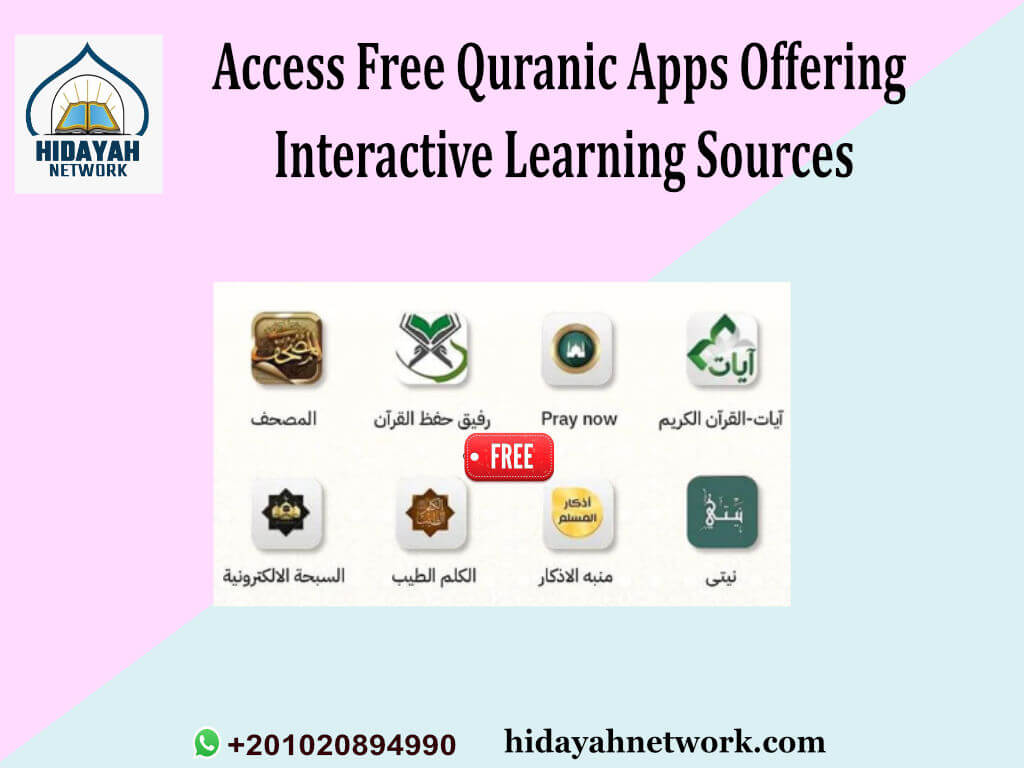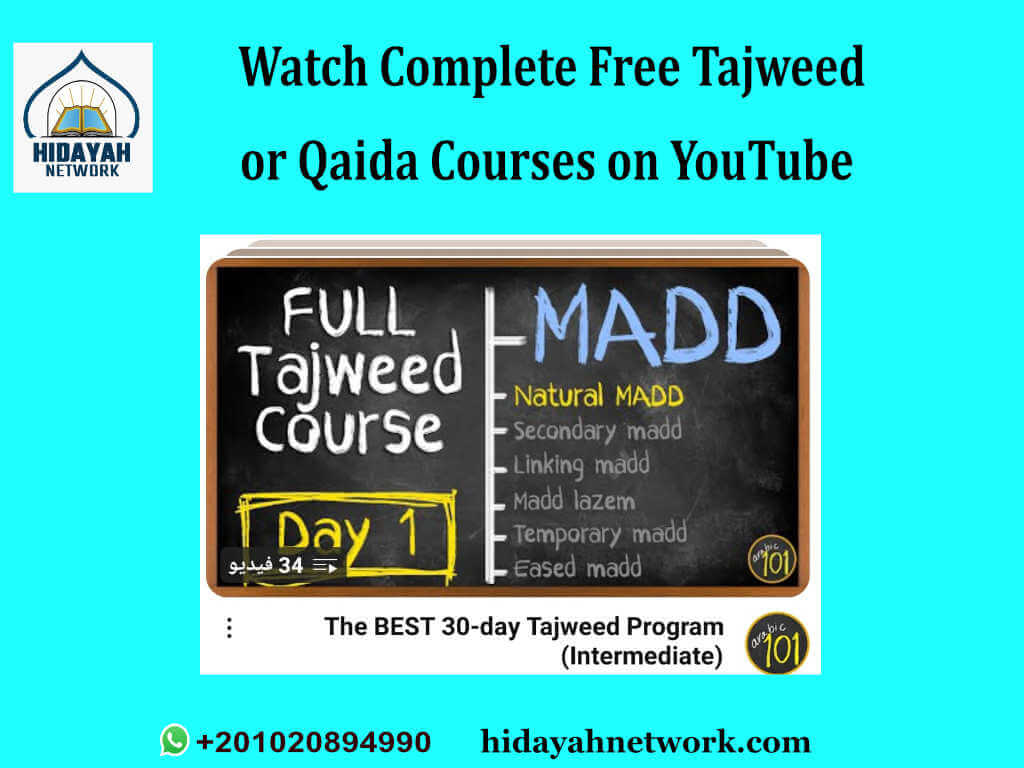How to Learn Quran Online for Free

- Hidayah
- Network
- | Role: Hidayah Network

Learning the Quran online for free opens doors to a wealth of knowledge at your fingertips. Numerous platforms offer accessible and comprehensive courses, ensuring flexibility for learners of all levels. That’s why today, we will share with you some of the best ways to learn the Quran online for free.
You must follow popular sheikhs on YouTube for basic Quran knowledge, join a free reputable online platform, visit forums like Quora, Reddit and Hidayan Network for guidance, explore open-access academic resources, use Quran educational apps and trackers, and more. You’d be glad to know that all these tools are available for free on the Internet.
Table of Contents
Toggle10 Tips to Learn Quran Online For Free
Let’s guide you thoroughly on how you can effectively and efficiently learn the Quran using the best tools on the internet possible.
1. Follow Popular Sheikhs on YouTube for Basic Quran Knowledge
Following popular sheikhs on YouTube for basic Quran knowledge is a valuable strategy to deepen your understanding of the holy book. These sheikhs, known for their expertise and clear explanations, use YouTube as a platform to share insightful lessons.
Here are three notable sheikhs whose channels can significantly aid your Quranic learning journey:
1. Mufti Menk
Mufti Menk’s YouTube channel offers straightforward explanations of Quranic verses and teachings, making complex concepts easy to grasp for beginners.
2. Nouman Ali Khan
Nouman Ali Khan’s channel provides in-depth linguistic and thematic analyses of Quranic verses, enhancing your comprehension and appreciation of the Quran.
3. Omar Suleiman
Sheikh Omar Suleiman’s YouTube platform delivers insightful lectures and reflections on Quranic teachings, offering practical applications for daily life and fostering a deeper connection with the Quran.
Get 40% OFF Now!
2. Join a Free Reputable Online Platform to Learn Quran
Joining a free, reputable learn quran online platform to learn in a practical and accessible way to deepen your religious knowledge. These platforms often provide structured courses, interactive lessons, and resources for learners of all levels.
Two notable platforms offering free Quranic resources are:
- Bayyinah Institute offers free Quranic lessons, focusing on both understanding and memorization, making it an excellent resource for beginners.
- Quran Academy provides a user-friendly online platform with free courses, personalized learning plans, and qualified instructors, fostering a supportive environment for Quranic education.
3. Visit Online Forums for Guidance on Challenging Quranic Verses
Visiting online forums for guidance on challenging Quranic verses is a prudent approach to fostering a collaborative learning environment. These platforms enable seekers to pose questions, share insights, and engage in discussions with a diverse community of learners and scholars.
1. Reddit – r/Islam
The r/Islam subreddit on Reddit serves as a space for users to seek advice and clarification on complex Quranic verses, benefitting from the collective knowledge of a global community.
2. Quora – Quranic Studies Topic
Quora’s Quranic Studies topic is a valuable space to ask questions and receive answers from individuals with various backgrounds and expertise, creating a dynamic platform for collaborative learning.
3. IslamicBoard
IslamicBoard is a dedicated online forum where members discuss various aspects of Islam, including Quranic interpretations. Joining this platform provides an opportunity to interact with a supportive community and seek guidance on challenging verses.
4. Explore Open-Access Academic Resources Related to the Quran
Exploring open-access academic resources related to the Quran unveils a wealth of scholarly materials that can significantly enrich one’s understanding of the holy text.
Platforms such as academia.edu, JSTOR, and Google Scholar offer a plethora of research papers, articles, and publications focusing on various aspects of Quranic studies.
These resources, contributed by scholars worldwide, delve into linguistic analyses, historical contexts, and interpretative frameworks, providing learners with a comprehensive and nuanced exploration of the Quran.
5. Participate in Online Quiz Competitions
Participating in online quiz competitions is a dynamic way to enhance Quranic knowledge. Platforms like Quizizz or Kahoot! Offer engaging quizzes on various aspects of the Quran, testing participants on verses, historical events, and thematic understanding.
These quizzes not only reinforce learning but also make the educational process enjoyable. Participants can challenge themselves and assess their progress while competing with others globally.
By tackling diverse concepts, including memorization, interpretation, and contextual understanding, individuals can fortify their grasp of the Quran in an interactive and competitive learning environment.
6. Use a Quran Educational App to Learn Complex Quranic Concepts

Utilizing a Quran educational app is a convenient method to grasp complex concepts. Apps like Al Quran, Learn Quran Tajweed, and Quran Word to Word provide interactive lessons, making learning accessible and engaging.
1. Al Quran
Al Quran app offers a user-friendly interface with translations, tafsir, and recitations, providing a comprehensive learning experience for users of all levels.
2. Learn Quran Tajweed
Learn Quran Tajweed app focuses on proper pronunciation and recitation, incorporating interactive lessons and quizzes for an immersive and effective learning experience.
3. Quran Word to Word
Quran Word to Word app aids in understanding the literal translation of each word, facilitating a deeper comprehension of complex Quranic concepts through a structured learning approach.
7. Use a Quran Tracker to Keep Track of Your Daily Progress
Utilizing a Quran tracker is a practical strategy to monitor and enhance your daily progress in Quranic studies. This tool helps maintain consistency, motivates regular engagement, and ensures comprehensive coverage of the Quran.
Here’s how to effectively use a Quran tracker:
- Define achievable goals for daily Quranic study.
- Track verses you’ve successfully memorized or studied.
- Note daily study durations to maintain a consistent routine.
- Identify challenging verses for further focus and understanding.
- Acknowledge and celebrate achievements and milestones regularly.
8. Listen to Quranic Audio Recitations Online
Listening to audio recitations online is a powerful method to improve Quranic recitation skills. By hearing expert reciters, learners can grasp the correct pronunciation, rhythm, and melody inherent in Quranic verses. If you are getting online quran recitation course then must record your classes videos.
Here are three notable Quranic reciters whose online recordings can significantly assist in mastering the basic quran recitation rules:
- Known for his clear and melodious recitations, Sheikh Alafasy’s recordings are widely used for learning and memorization.
- Renowned for his precise Tajweed (rules of Quranic recitation), Sheikh Basfar’s recitations provide an excellent model for learners.
- Sheikh Al-Ghamdi’s measured and expressive recitations are valued for their adherence to Tajweed rules.
9. Access Online Tafsir and Tafheem Tools to Learn Quranic Themes

Accessing online Tafsir and Tafheem tools is an invaluable approach to delve into the deeper meanings and themes of the Quran. Tafsir refers to the scholarly interpretation of Quranic verses, providing insights into historical context, linguistic nuances, and spiritual significance.
Tafheem tools aid in understanding the broader themes and lessons conveyed in the Quran. Online platforms such as Quran.com, IslamAwakened, and Al-Mizan.org offer extensive Tafsir resources, allowing learners to explore diverse interpretations and gain a profound understanding of the Quranic themes.
10. Watch Complete Free Tajweed or Qaida Courses on YouTube

Watching complete free Tajweed or online noornai Qaida course on YouTube is an excellent way to master the foundational principles of Quranic recitation. Tajweed involves the correct pronunciation and intonation of Quranic verses, while Qaida covers the basics of reading and reciting Arabic script.
Many dedicated YouTube channels, such as “Learn Quran with Tajweed” and “Qaida Lessons for Beginners,” offer comprehensive courses. These videos break down the intricacies of Tajweed and Qaida, providing step-by-step guidance, practice sessions, and valuable tips.
Note: Accessible to learners of all levels, these free resources on YouTube facilitate a structured and self-paced learning experience.
Conclusion
Remember to stay consistent and patient. Take advantage of the diverse resources mentioned, from YouTube lessons to online forums and apps. Celebrate your progress, no matter how small, and don’t hesitate to seek guidance when needed. Learning the Quran is a personal and rewarding adventure, and with these tools, you have the keys to unlock its beauty.

About Author
